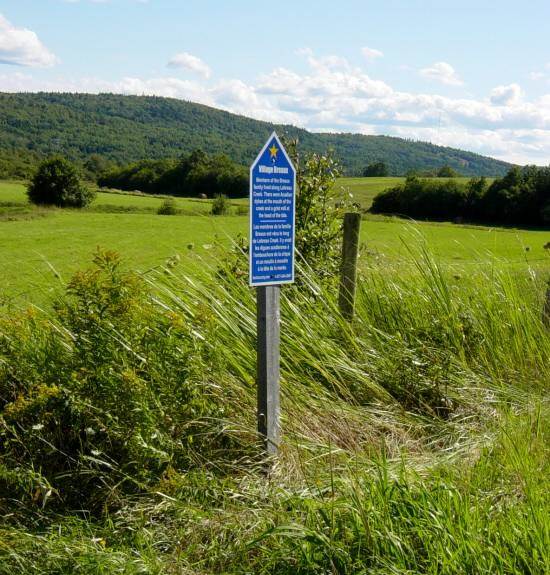
Photographs of
Country Harbour LoyalistTrail Waterside Site
Owned by the Municipality of the District of Guysborough
Stormont Guysborough County Nova Scotia
Located at Leggett Point, on the east shore of Country Harbour
GPS location: 45°11’33″N 61°42’50″W
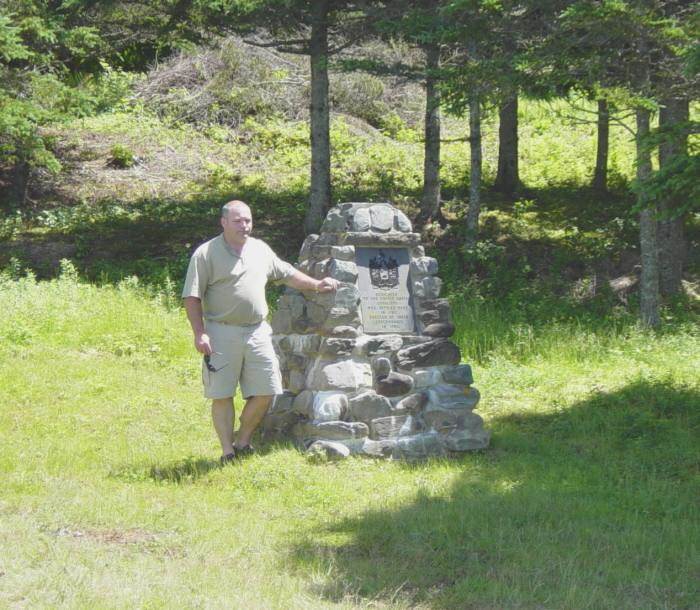
Robert Walsh stands beside the Loyalist Monument.
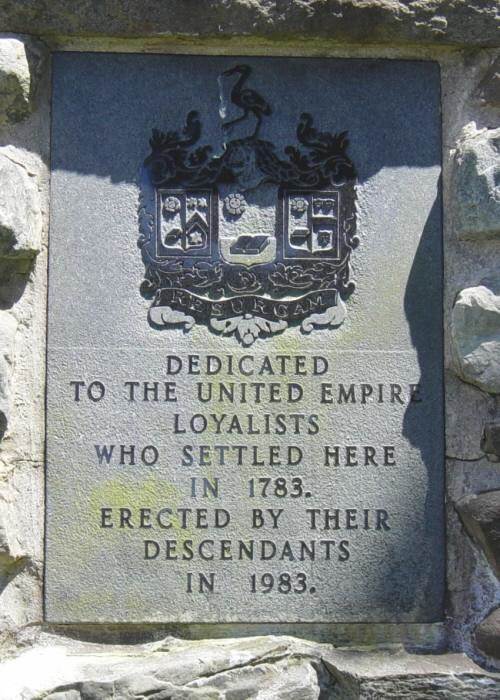
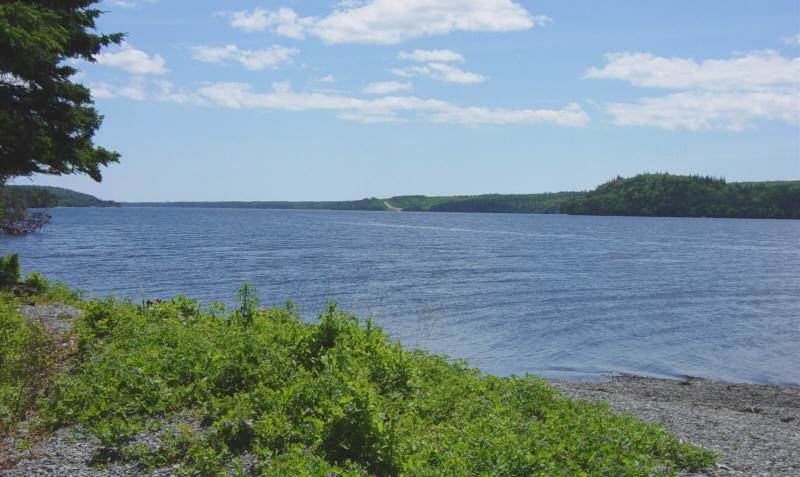
These two photographs (above and below) were taken while standing at the same spot.
(above) Looking southward, along Country Harbour toward the Atlantic Ocean.
(below) Looking eastward.
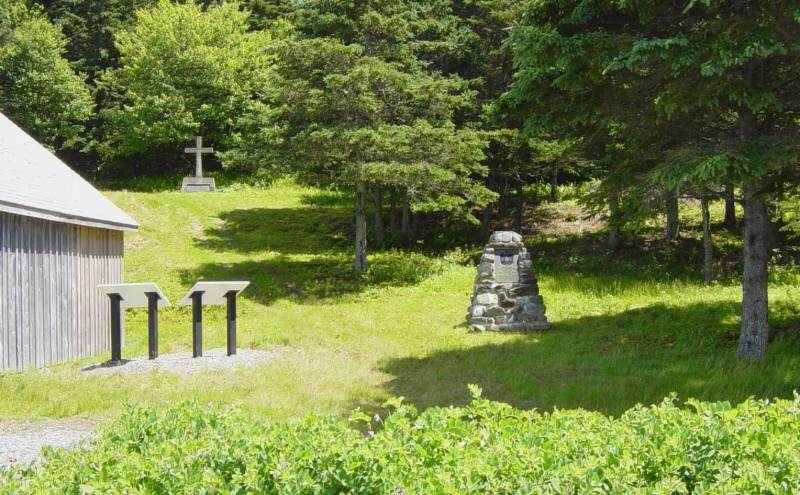
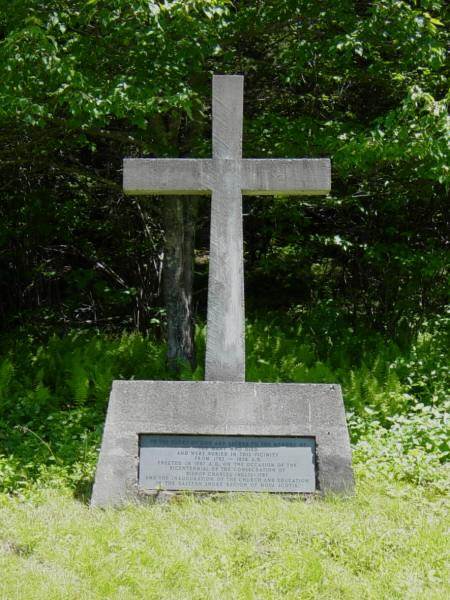
Charles Inglis (1734-1816)
Dictionary of Canadian Biography
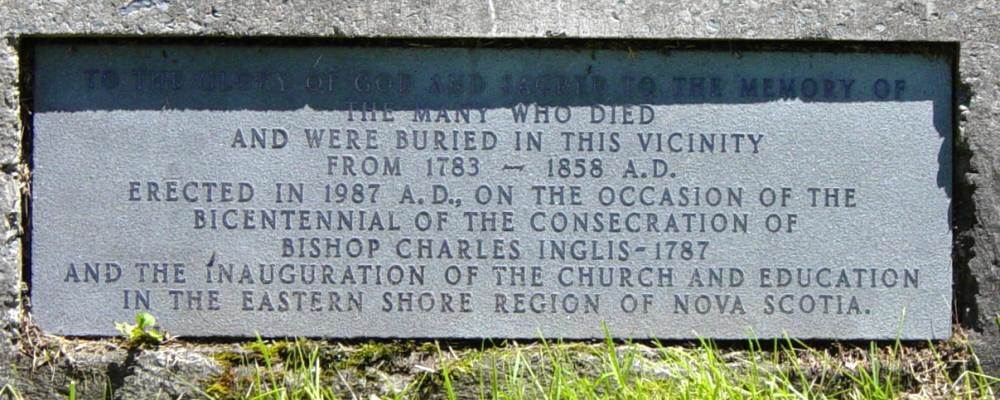
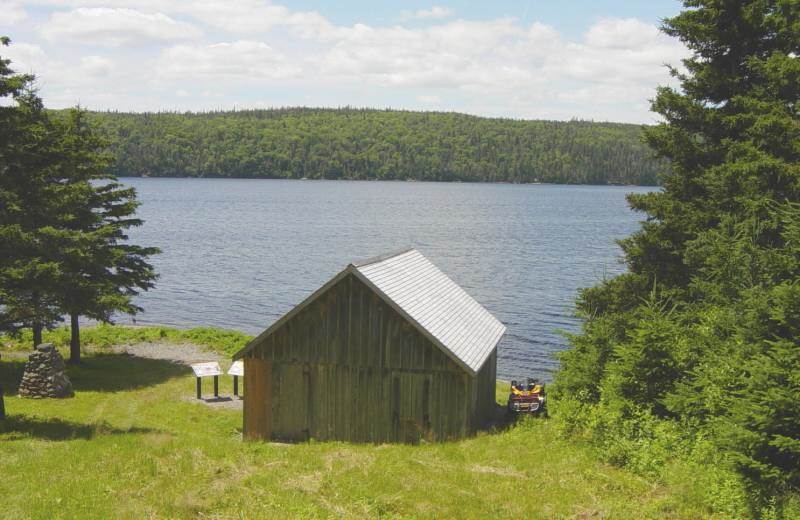
Replica of Captain Leggett’s 1790s store
The above photographs were taken on 15 July 2006.
Also see:
Roadside Park – Country Harbour Loyalist Trail
Country Harbour Loyalist Trail Waterside Site
South (left) Interpretative Panel
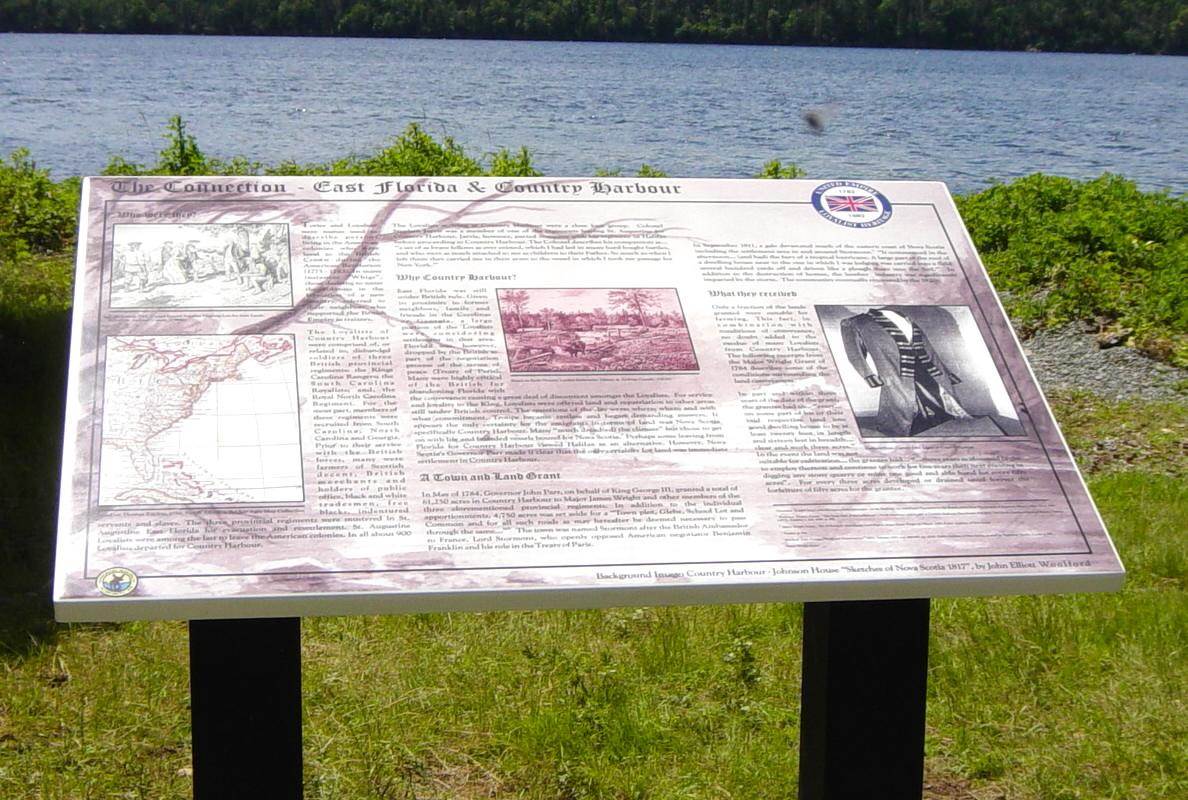
South interpretative panel
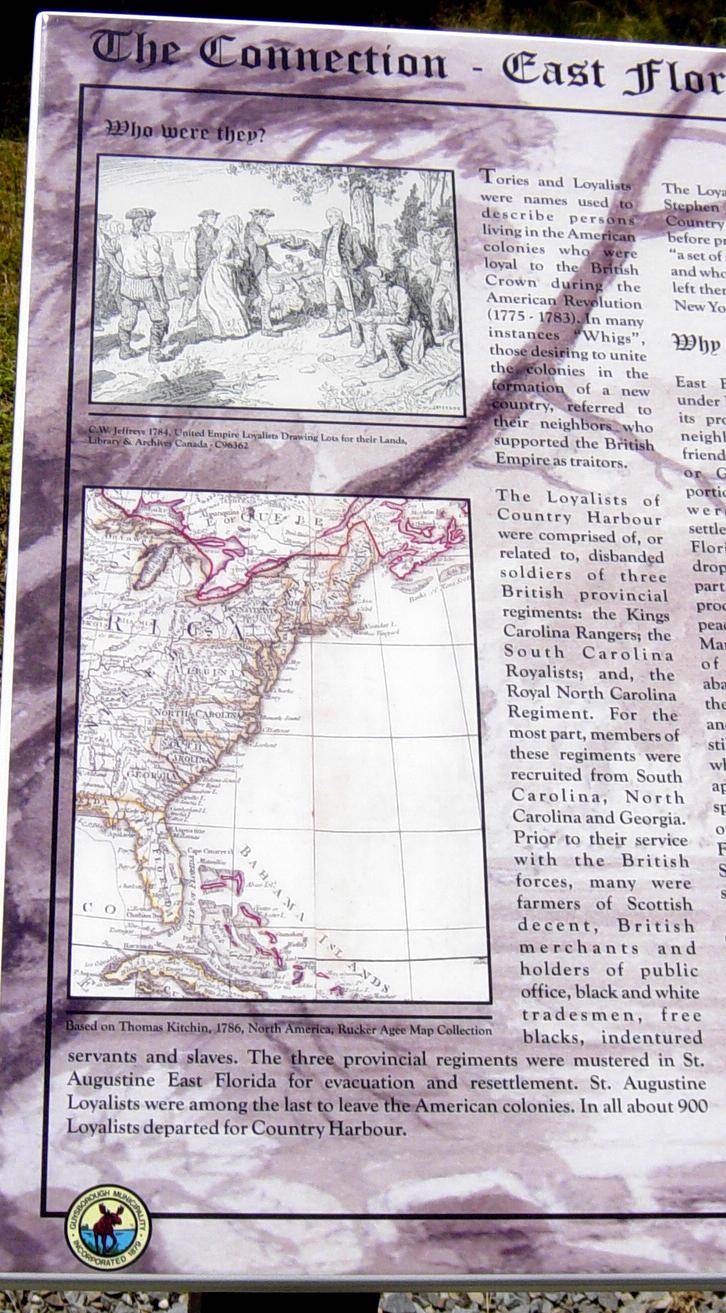
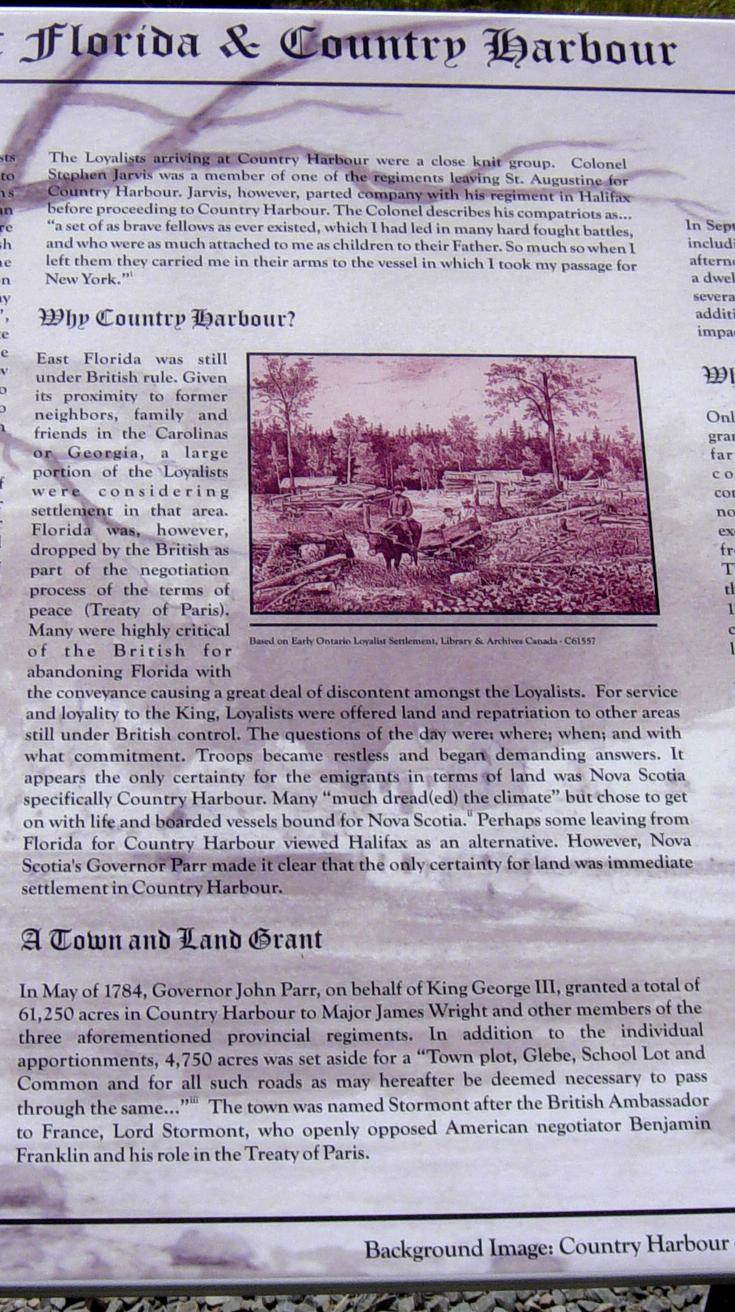
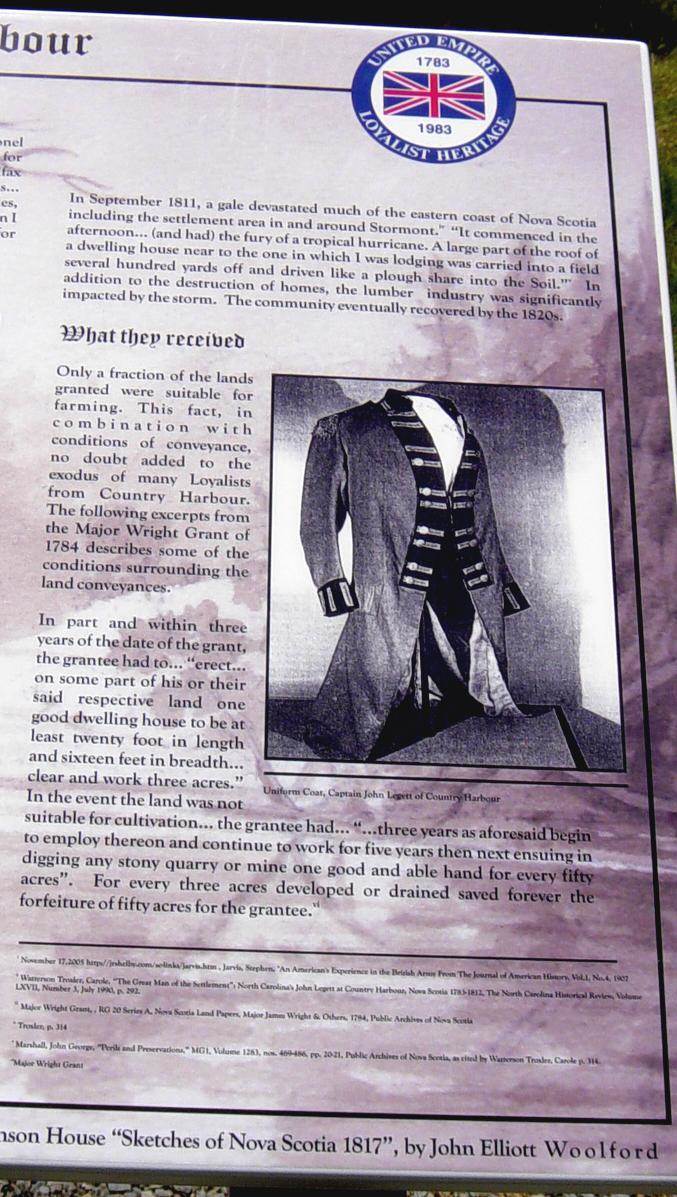


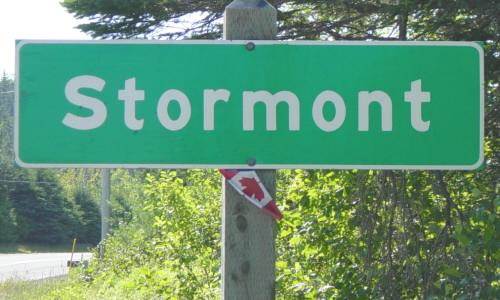
Nova Scotia road sign beside highway 316
The above photographs were taken on 15 July 2006.
Country Harbour Loyalist Trail Waterside Site
North (right) Interpretative Panel
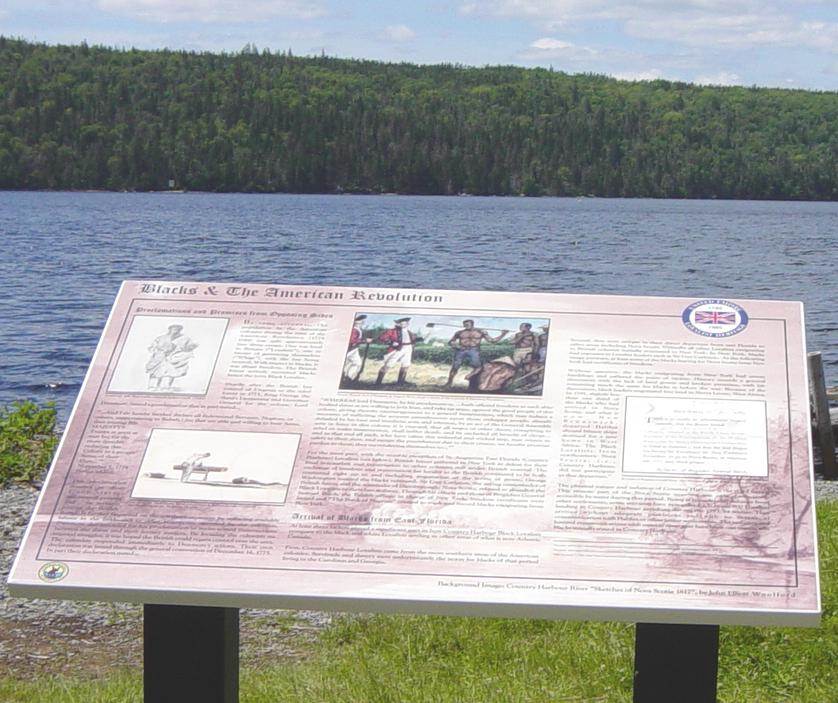
North interpretative panel
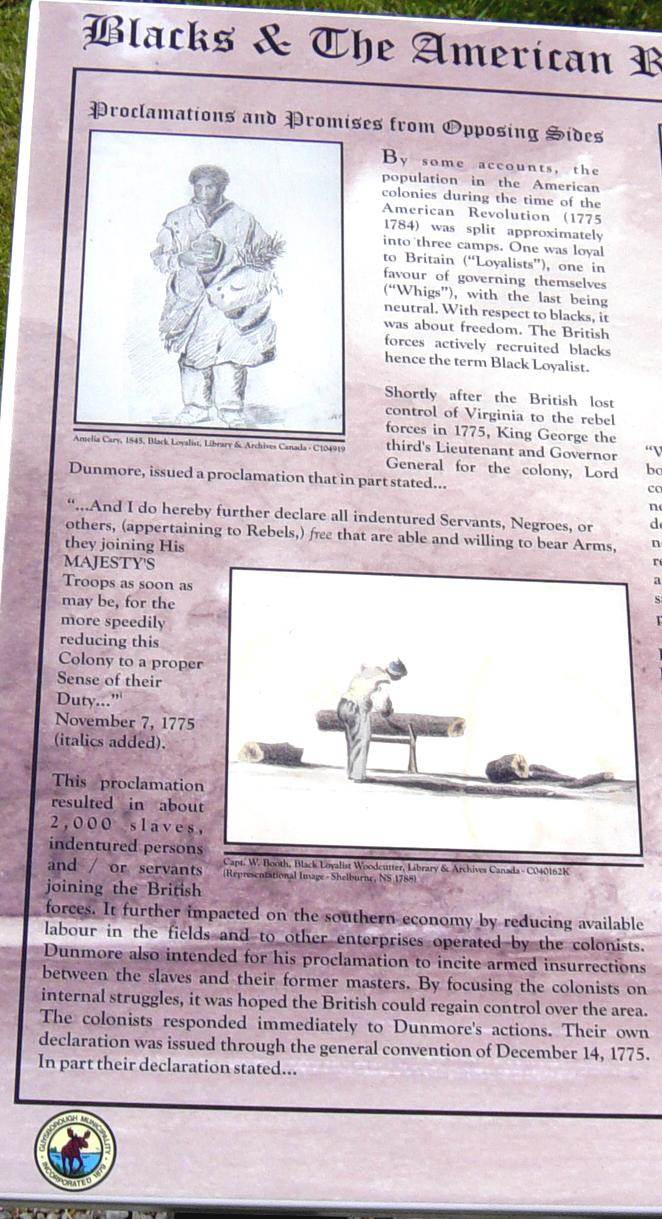
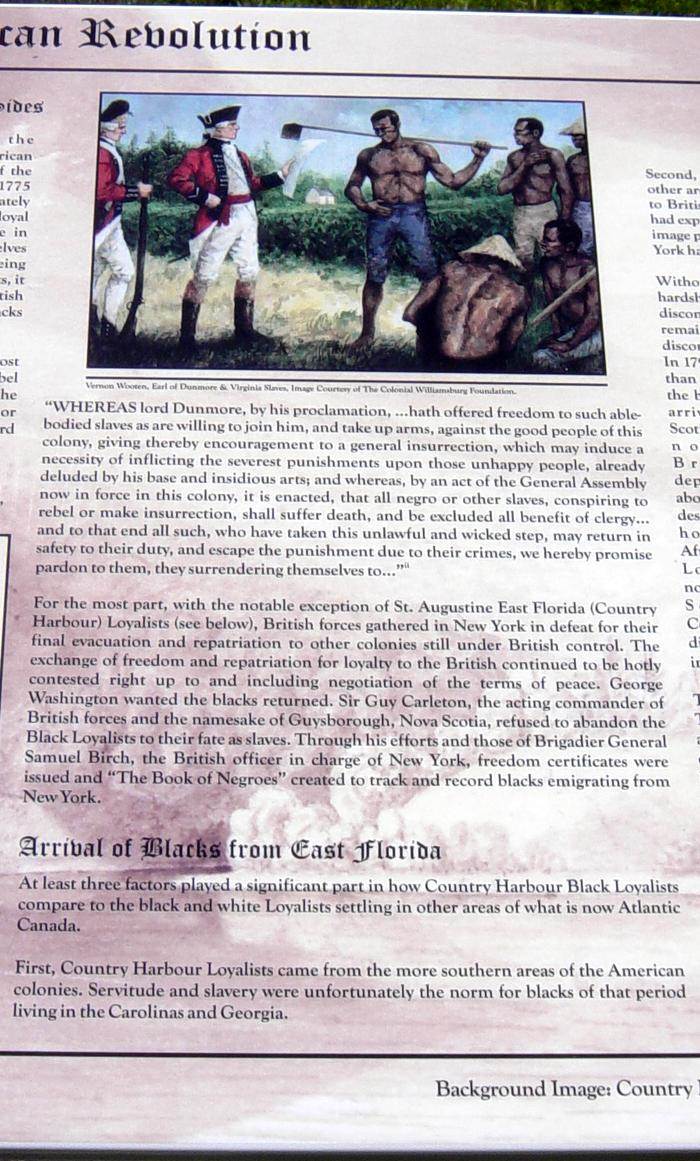
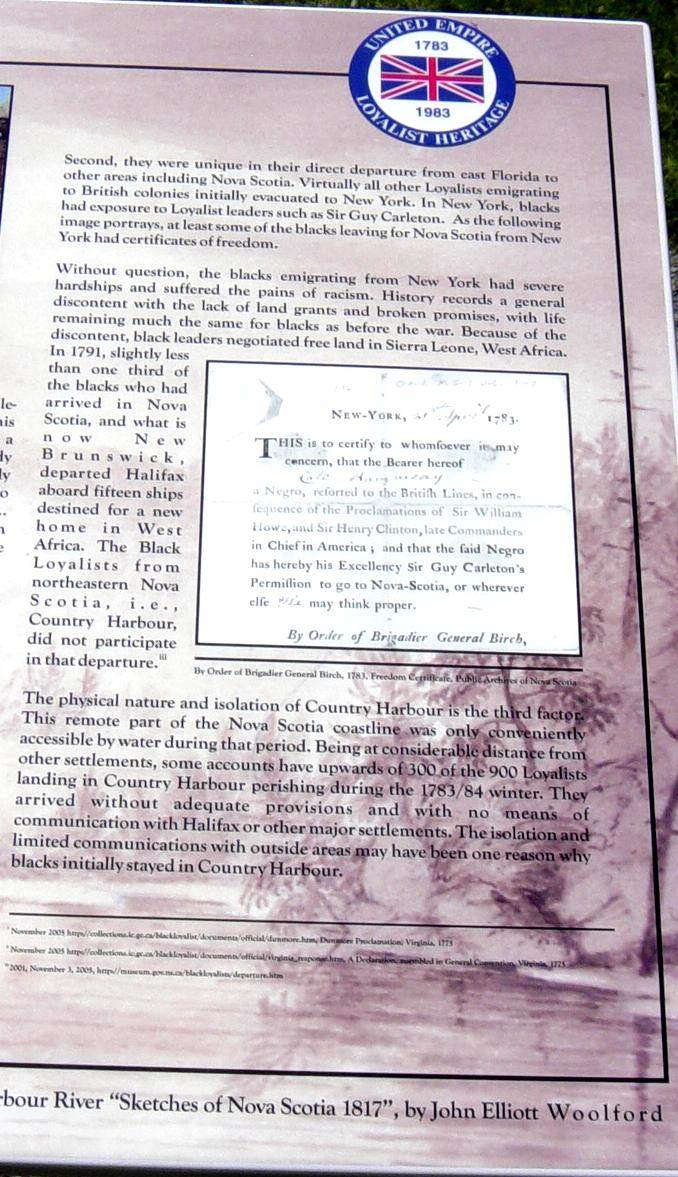
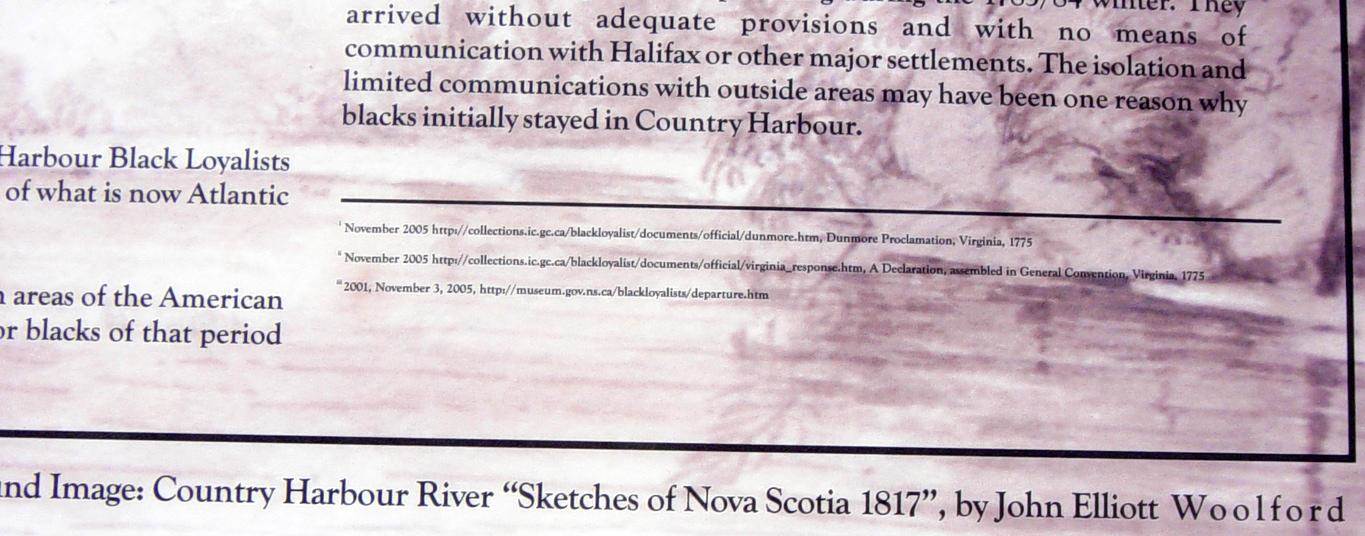
The above photographs were taken on 15 July 2006.
Country Harbour Loyalist Trail Waterside Site
Interpretative Panel
in Captain Leggett’s store replica
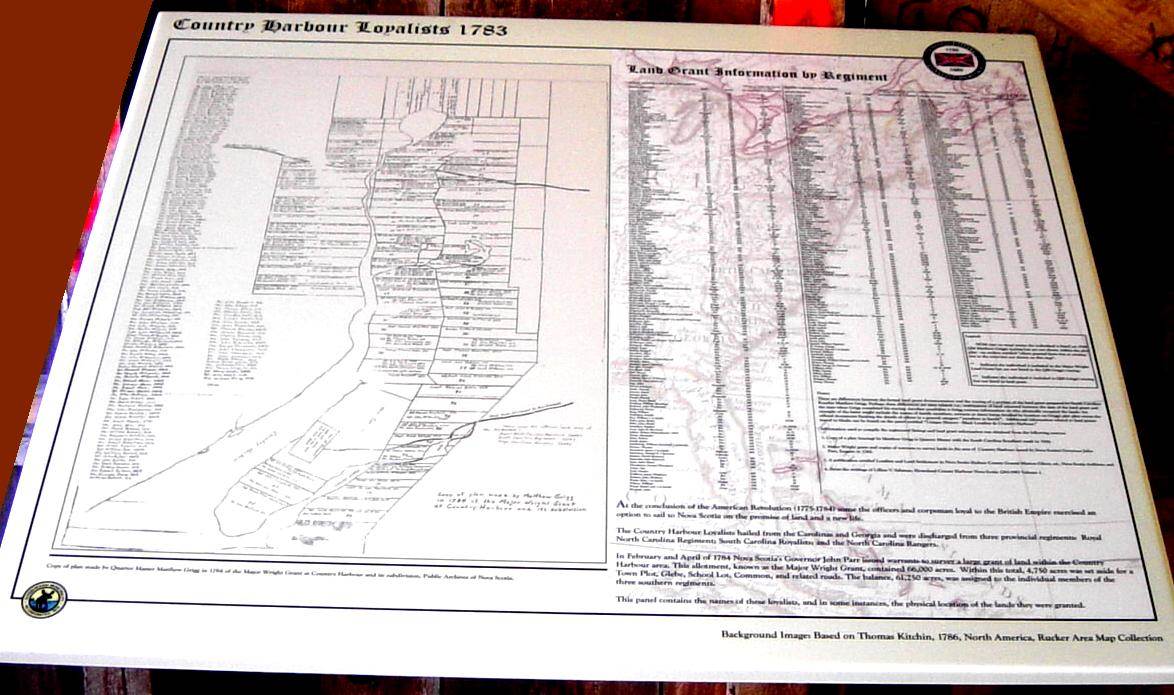
Photographed on 15 July 2006

ATV (all-terrain vehicle) trail to Country Harbour Loyalist waterside site.
Photographed on 15 July 2006
Also see:
Roadside Park – Country Harbour Loyalist Trail
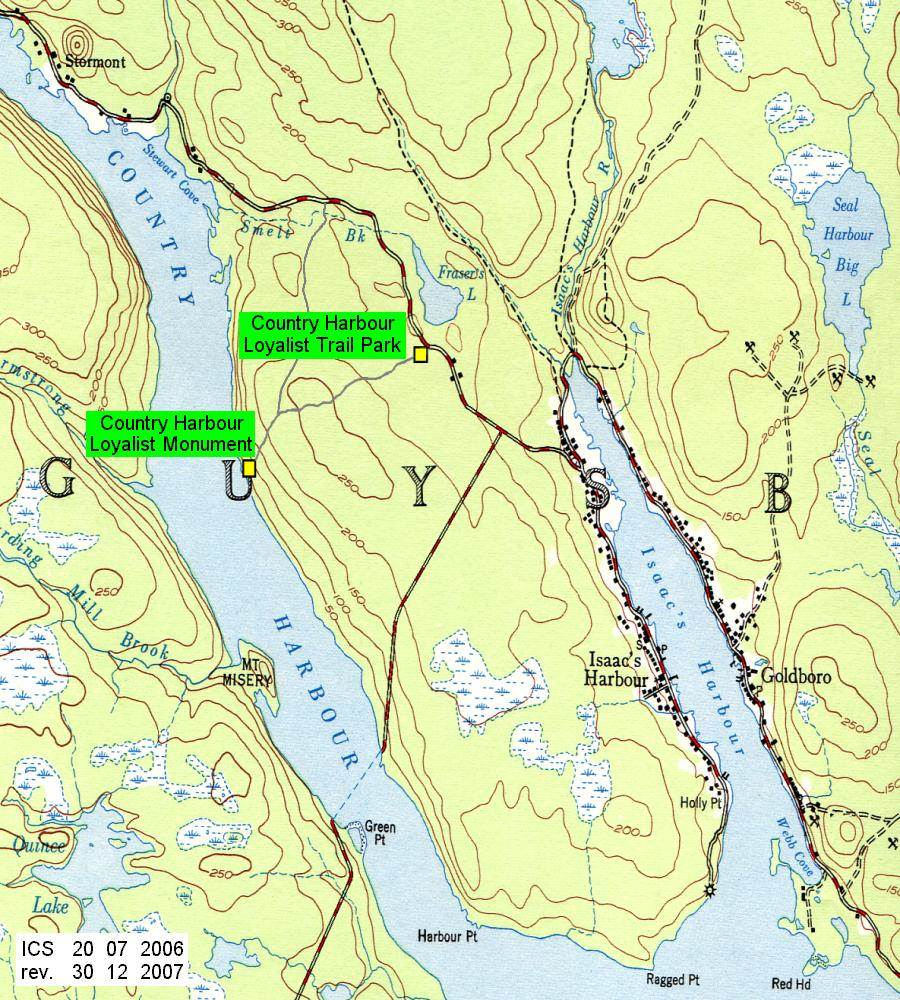
Map showing the location of the Country Harbour Loyalist sites
The distance between the Loyalist Trail Roadside Park
and the Loyalist Monument is about 2.2km [1.3 miles].
Contour intervals are marked in feet (100 feet = 30m)
Country Harbour Loyalist Society Directors
July 2006
Noreen Hayne
Robert Walsh
Anthony C. Porter
Michele MacArthur
A United Empire Loyalist’s Bibliography…
http://www.uelac.org/bibcon.htm
The Black Loyalists Commander-in-Chief Sir Guy Carleton upheld British honour by
insisting that the runaways were not, in fact, American property at the time of the
Provincial Peace Agreement (1782) and that they must be allowed to evacuate with
other Loyalists. The evacuees were carried to Bermuda, the West Indies, London,
and other British territories, but the largest group, all told about 3,500, located in
Nova Scotia in 1782-83. They confidently expected a just reward for their loyalty
to the Crown… From the outset of their history in Canada, the free Blacks were locked
in poverty and economic dependence that could have been avoided had they received
the farms to which they were entitled as Loyalists…
http://epe.lac-bac.gc.ca/100/205/301/ic/cdc/heirloom_series/
volume6/248-251.htm
Dunmore’s Proclamation
Lord Dunmore’s Proclamation Digital Collections archive
http://epe.lac-bac.gc.ca/100/205/301/ic/cdc/blackloyalists/
story/revolution/dunmore.htm
Lord Dunmore’s Proclamation, official text Digital Collections archive
http://epe.lac-bac.gc.ca/100/205/301/ic/cdc/blackloyalists/
documents/official/dunmore.htm
Lord Dunmore’s Proclamation. 5 May 1774 West Virginia Division of Culture & History
http://www.wvculture.org/history/dunmore/dunmoreproclamation.html
Text of Dunmore’s Proclamation by the Tidewater Labor Support Committee
http://www.wm.edu/so/tlsc/resources/sourcebook/dunmore.htm
Response of the Colony of Virginia “…this unlawful and wicked step…”
http://epe.lac-bac.gc.ca/100/205/301/ic/cdc/blackloyalists/
documents/official/virginia_response.htm
Virginia was England’s oldest, wealthiest, and most populous North American colony.
Proclamation of Earl of Dunmore by WGBH Boston PBS
http://www.pbs.org/wgbh/aia/part2/2h42.html
Image of contemporary printing of Dunmore’s Proclamation by WGBH Boston PBS
http://www.pbs.org/wgbh/aia/part2/2h42b.html
John Murray, 4th Earl of Dunmore by Wikipedia
http://en.wikipedia.org/wiki/Lord_Dunmore
Black Loyalist by Wikipedia
http://en.wikipedia.org/wiki/Black_Loyalist


